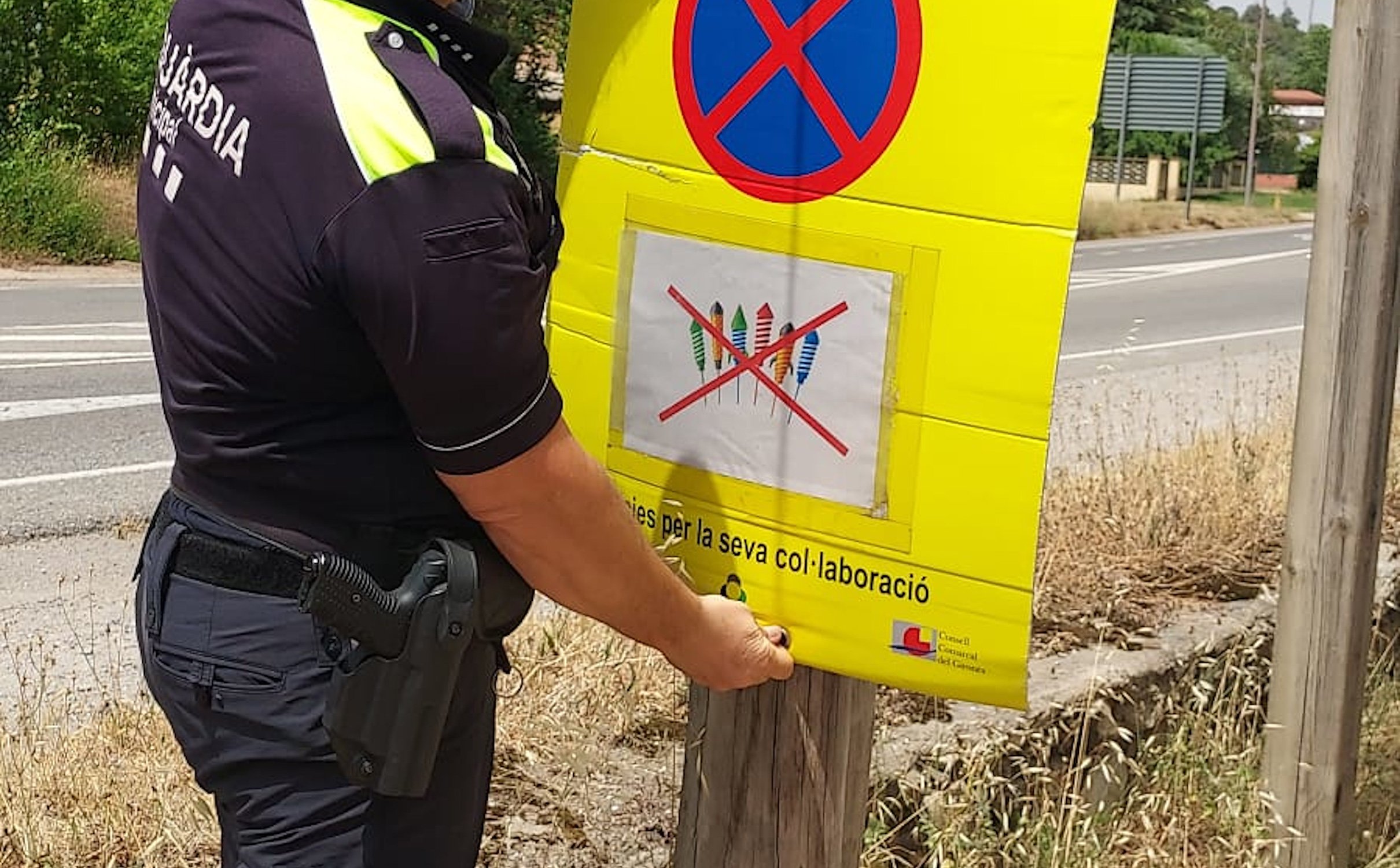Final party preparations are being made and the traditional coques are already coming out of bakers' ovens all over Catalonia. With just hours till to go until Catalonia celebrates the revetlla de Sant Joan, the eve of Saint John, the annual midsummer's night festival which has not been properly enjoyed since before the pandemic, among those who are especially busy with preparations are Catalan firefighters and emergency teams. Just days after Catalonia suffered an early heatwave and several major wildfires, the interior ministry has today confirmed that, although local municipal bans on fires and fireworks apply in many areas and must be consulted, there will be no general ban on fires and skyrockets. The only element of the party which is banned across Catalonia this year - and it's not an especially common one - are the fanalets - burning paper lanterns which illuminate the sky beautifully, but are too much of a fire risk.
For this Thursday night, 23rd June, the department headed by Joan Ignasi Elena has designed an operation device, the largest in history, to ensure safe festes and reduce the risk of wildfires. Despite the relative comfort after last week's extreme temperatures, with partly cloudy skies forecast for Thursday night in most of Catalonia, this summer's anti-forest fire campaign will be complex and the message from the interior ministry is that it is better to avoid rockets, firecrackers and bonfires this Sant Joan. They start forest fires.
Paper lanterns banned nationwide
Although rockets and firecrackers may be lit and bonfires may be made at places authorized by each municipal council, the Catalan interior ministry has banned the lighting of paper lanterns throughout Catalonia. These products, which rise into the air on the hot-air balloon principal, since they are both illuminated and heated by a small candle, are very dangerous. When they eventually fall back to earth, the lanterns are often still in flames and far away from their launch point, and can easily set off fires at a time when forests and fileds are tinder-dry. And not just in the countryside: the city of Barcelona already announced on Monday that it was banning them throughout the Catalan capital.

In addition to this measure, the interior ministry has recalled the regulations that are already in force each year, such as the prohibition on the use of pyrotechnics or any fire element within 500 metres of forest areas throughout Catalonia. As well, that bonfires cannot be lit without municipal authorization and never less than 500 metres from forest. Major fireworks displays and traditional Catalan correfoc processions need permission from Catalan government delegations.
The beaches are back
For the first time since 2019, one of the major party spaces in Barcelona city on Sant Joan, the urban beaches, will be fully open, with the city council envisaging as many as 60,000 revellers will take their party onto the sand. However, the guinguetes or beach bars will be required to close earlier than in the pre-pandemic era, at 3:30am. The beaches will be fully dislodged at 6:00am. Party goers are reminded to be considerate to the residents of marine neighbourhoods who may want to sleep for at least some of the night: in fact, in Barceloneta, a city police operation will prevent people from passing through the middle of the district on their way to and from the beach.

763 fires
The celebration of the Revetlla de Sant Joan is the busiest festival of the year for the Catalan fire service, above all due to call-outs because of minor brush fires or burning rubbish containers. Last year, they responded to 763 fires.

